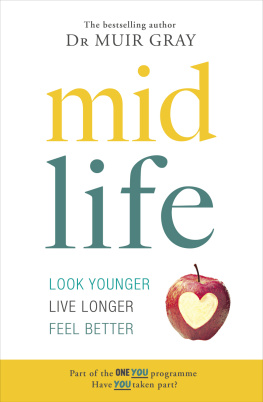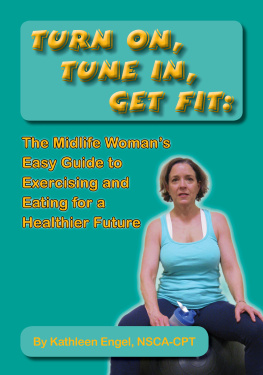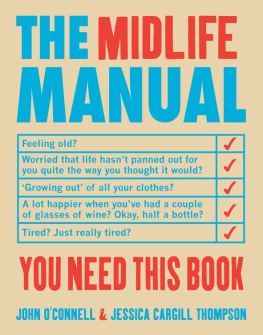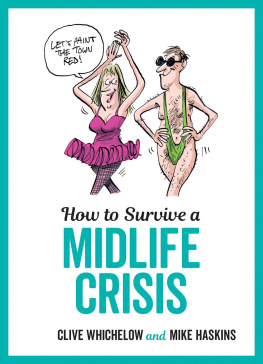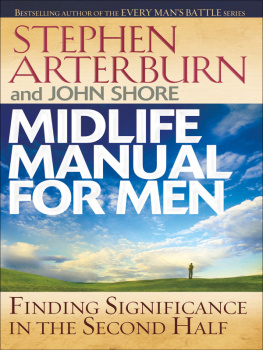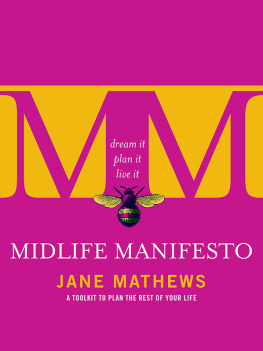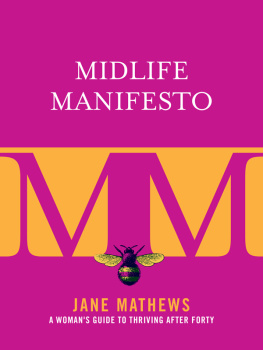This ebook is copyright material and must not be copied, reproduced, transferred, distributed, leased, licensed or publicly performed or used in any way except as specifically permitted in writing by the publishers, as allowed under the terms and conditions under which it was purchased or as strictly permitted by applicable copyright law. Any unauthorized distribution or use of this text may be a direct infringement of the authors and publishers rights and those responsible may be liable in law accordingly.
Epub ISBN: 9781473538467
Version 1.0
Published by Century 2016
1 3 5 7 9 10 8 6 4 2
Copyright Sir Muir Gray
Illustrations David Mostyn
Cover photo Getty Images
Sir Muir Gray has asserted his right to be identified as the author of this Work in accordance with the Copyright, Designs and Patents Act 1988.
First published by Century in 2016
Century
The Penguin Random House Group Limited
20 Vauxhall Bridge Road, London, SW1V 2SA
www.penguin.co.uk
Century is part of the Penguin Random House group of companies whose addresses can be found at global.penguinrandomhouse.com
A CIP catalogue record for this book is available from the British Library
ISBN 9781780896625
This book is dedicated to the unsung heroes of The Sandwich Generation, supporting two generations, under stress at work and giving insufficient priority to their own wellbeing.
Foreword
As Chief Medical Officer, I commonly look at health issues and risk factors that affect the entire population. In my 2013 Annual Report, for instance, I examined infectious diseases and, in particular, the threat of antimicrobial resistance. If left unchecked, this will shake the foundations of modern medicine for us all.
There is also value in focusing on specific sections of the population to take a demographic, rather than a thematic approach. This allows me to knit together strands of evidence to form a coherent picture of the health of groups within the population, and thus influence public policy in order to improve their health. Recognising that the importance of addressing their health issues, risk factors and needs is often underemphasised, I began a piece of work in 2015 to examine the data around the health of people commonly referred to as the Baby Boomer generation. My forthcoming 2015 Annual Report will describe this work and give a snapshot of health for this group.
In this context, a work such as Dr Grays is very welcome. By promoting understanding of the health issues faced by those in midlife, it should encourage people to improve their health at this stage in life and reduce their risk of disability and dementia on reaching old age. If this were achieved, it would not only increase their quality of life but also reduce the burden on their offspring when they reach midlife themselves. I welcome Dr Grays work and hope you enjoy reading this book.
Professor Dame Sally C Davies FRS FMedSci
Chief Medical Officer
Department of Health, London
At 20, most of us feel immortal or at least we act that way.
At 50 and Ive just marked that birthday the penny has begun to drop. By then, maybe youve had a health scare. Or a close friend, or brother or sister has. At the very least, perhaps youve finally succumbed to reading glasses, youve noticed your jeans getting tighter and youre a bit less agile kicking a football around the park with your kids.
So, nows the time to smell the coffee. Muir Gray one of our countrys leading doctors sets out smart advice in this short but compelling volume. Its packed with advice on staying healthy, enjoying life and living well. The good news? Make a few impactful lifestyle changes, and the chances are well be the longest-living generation in human history. Lose some weight by eating less, and better. Dial back on the booze. Walk and exercise a bit more. Get your blood pressure checked, have a bowel cancer check-up when invited, know your numbers on your body mass index.
Worldwide, life expectancy is rising by five hours a day. And since the 1950s, in western countries thats mostly been due to improvements in middle-aged and older peoples health. Some of that is thanks to what the NHS has done for us, but much of it depends on what we choose to do for ourselves. Our wives, husbands and partners, our children and grandchildren, are all cheering us on.
Simon Stevens
CEO of NHS England, Simon is also responsible for NHS Choices and the Diabetes Prevention and the blood pressure programmes.
Introduction
I did not own or have the use of a car until I was 28. For the first 25 years of my life, neither my family nor I had the money to run one. When I was 26 and 27, I was too busy working in hospitals to need a car. In fact, I did not even think about owning one during this time.
However, at the age of 28, I got a job which required me to use one. So I bought a second hand Vauxhall Viva van into which I could load the love of my life, my bike.
From what I had learned about health and wellbeing as a result of my medical studies and the diploma in preventive medicine that I had acquired, it seemed to me that the start of a life dominated by the car and a desk job was the start of the downhill journey.
The job I had at 28 involved two things. The first was the health education of young people and the second was organising care for the elderly. As I got to know a large number of these patients, I was struck by the huge variation in ability. Some in their eighties were very disabled and dependent on others, whereas there were people the same age who were lively, driving cars, working, and performing an invaluable role in supporting their spouse or loved one. I thought to myself, what made the difference?
When I discussed this with my elderly patients it became clear that, for many, the problem was caused by disease or diseases that were not preventable. So, a bit of luck is important. However, other diseases were the same ones that we were educating, or trying to educate, young people to avoid. The second factor was loss of fitness which, for many people, could be traced to 45 years of sitting at a desk job from about the age of 20 to 65.
I could see change happening in people from the age of 20 on. By starting an office job, the effects of sitting all day might not take effect until the forties. But, there are often many other stresses in their lives: work, children and elderly parents.
For years we have assumed that everything was plain sailing for the grown ups and the medical establishment has focused on the needs of children and old people. But in recent years it has become clear that midlife is a tough time. It is also clear that people in midlife can regain lost fitness and lose weight, so they can feel better, look younger and live longer. It is also clear that the changes that are needed are also changes that will reduce the risk of problems in the years to come.
Midlife is the end of the beginning, not the beginning of the end and I wrote this book, with the help of a number of experts, to help midlifers regain control.
Sir Muir Gray
1.
Forty to Sixty: The Midlife Challenge
Last year, a friend called me in a state of dismay. He had just had his 54th birthday and he had stopped working at his job. But rather than enjoying his freedom and doing all the things he has always wanted to do, he felt trapped. He felt defined by his age, as though his life had passed him by. This shouldnt sound unfamiliar. Maybe the same thing has happened to someone you know, or maybe it happened to you when you approached midlife.

